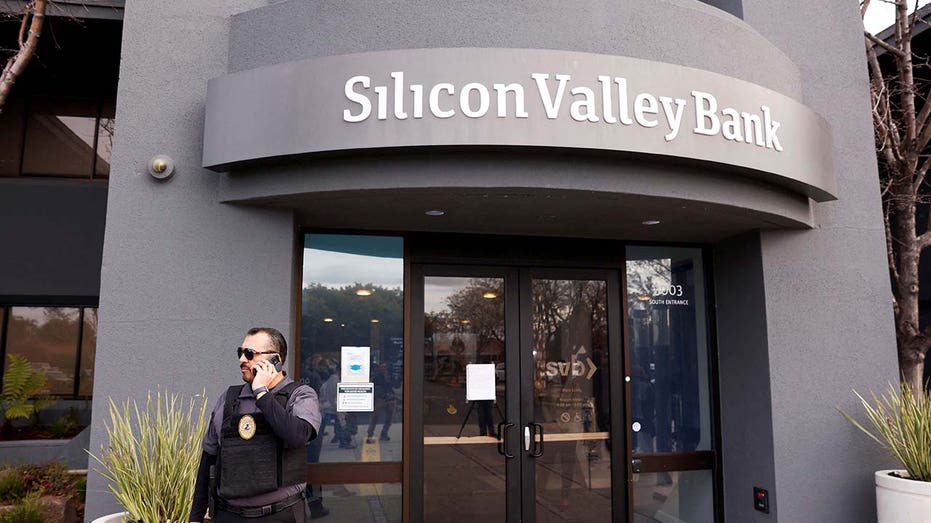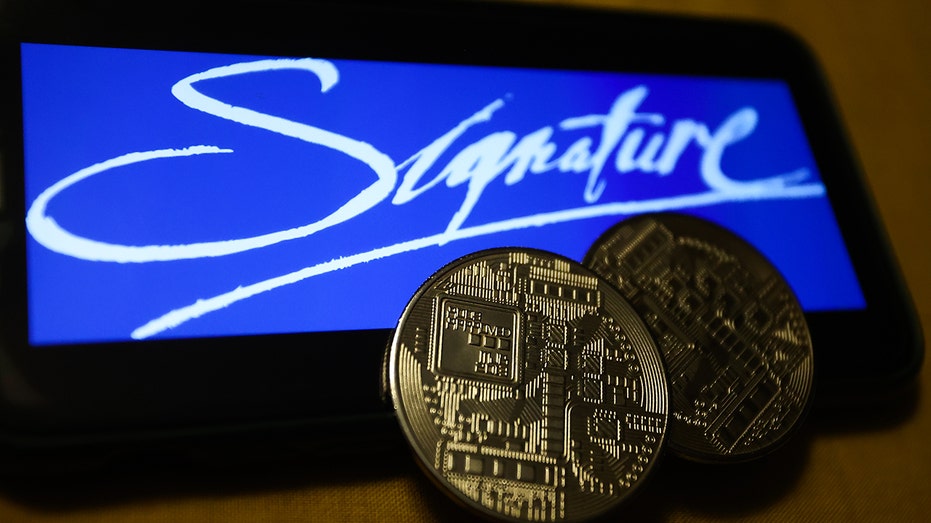SEC Staff Throw Cold Water on Calls for Ban on Short Selling of Bank Stocks
Failures at regional banks such as First Republic, Silicon Valley and Signature prompted scrutiny by Gensler
Republicans launch full offensive on SEC's Gary Gensler over climate disclosure proposal
FOX Business senior correspondent Charlie Gasparino reports top GOP members are demanding Gary Gensler comply with their request for more information on the SEC's climate change proposal on 'The Claman Countdown.'
If Securities and Exchange Commission Chairman Gary Gensler wants to ban short selling of regional bank stocks, he will have to do it over the objections of the agency’s career staffers, FOX Business has learned.
The recent tumult in the regional banking business, where stocks of mid-sized banks sold off sharply after the failures of First Republic, Silicon Valley, and Signature banks, has sparked calls for a ban on short selling these shares to stem the crisis and prevent additional collapses.
GARY GENSLER'S GROSS SEC OVERREACH
Private credit will fill the lending void left by Wall Street banks: Jason Katz
UBS managing director and senior portfolio manager Jason Katz discusses the benefits of private credit as banks shy away from lending on 'Varney & Co.'
Short selling occurs when a trader borrows a stock, sells it, replaces the borrow at a lower price and pockets the difference. The practice is often controversial because targeted companies say these traders spread unfounded rumors in order to hasten the stock declines and possibly the collapse of the entire company.
Proponents of short selling say the practice helps uncover massive financial frauds such as the collapse of Enron back in 2001, unearthed by the famed short seller James Chanos. They say it adds to the price discovery of stocks as the market digests both positive and negative information. Supporters also say that most market manipulation occurs by traders pumping stocks with unfounded assertions of companies’ prospects, thus causing massive small investor losses after the stocks correct.
SEC CHAIRMAN GARY GENSLER MET WITH HEAD OF FTX MONTHS BEFORE COLLAPSE
So far at least, SEC staffers — the career attorneys who are not political appointees — are advising against implementing a short sell ban, people with direct knowledge tell FOX Business. They say the last time a ban was implemented following the 2008 financial crisis, it actually added more uncertainty to the financial markets, causing bank stocks to fall further.
People close to the SEC say Gensler, the chair since April 2021, will have to propose the ban himself and push it through the full five-member commission on a party-line vote. The two Republican commissioners, Hester Peirce and Mark Uyeda, will probably vote against any such measure.

A pedestrian walks past a First Republic Bank in San Francisco on April 26, 2023. Regulators continued their search for a solution to First Republic Bank’s woes over the weekend before stock markets were set to open Monday, May 1. (AP Photo/Jeff Chiu / AP Newsroom)
An SEC spokeswoman declined to comment. An official at the SEC who spoke on condition of anonymity told FOX Business a short sale ban is "not something the commission is currently contemplating."
Gensler himself may have contributed to the calls for the ban. Last week, as regional bank shares were in free fall, Gensler issued a statement raising the specter that short sellers were manipulating the shares for personal gain.
"As I’ve said, in times of increased volatility and uncertainty, the SEC is particularly focused on identifying and prosecuting any form of misconduct that might threaten investors, capital formation, or the markets more broadly," Gensler said in a May 4th statement on the SEC’s website.
Since the beginning of the year, regional bank shares have fallen 36% compared to an 8.21% rise in the S&P 500 index. In recent days, as fears of more bank failures have subsided, shares have rebounded somewhat, but are well off levels before regional banks began to falter with the demise of Silicon Valley and Signature Bank in early March. On May 1, the Federal Deposit Insurance Corp., placed the ailing First Republic into receivership, selling most of its assets to JPMorgan, the country’s largest bank.

A security guard stands outside of the entrance of the Silicon Valley Bank headquarters in Santa Clara, California, U.S., March 13, 2023. (REUTERS/Brittany Hosea-Small / Fox News)
The last time the SEC banned short selling was in the heat of the financial crisis. In September 2008, big banks were on the verge of collapse. The government seeded the financial system with billions of dollars in taxpayer bailout money following Lehman Brothers’ bankruptcy.
The SEC enacted a 21-day ban on shorting the shares of the remaining big banks. But traders and investors continued to unload financial stocks because the move suggested that the banking system was in more trouble than previously thought.
REPUBLICANS PROBE SEC CHAIR GENSLER OVER POTENTIAL VIOLATION OF FEDERAL TRANSPARENCY LAWS
Multiple rounds of government bailouts in the form of cash infusions into some of the hardest-hit banks continued until the banking system stabilized in March 2009. By that time, the S&P declined 44% to 693, a recent historic low. It traded as high as 1,213 before Lehman went under. The S&P closed Monday at 4,138.
But that experience hasn’t deterred calls for a selling ban when shares of PacWest Bancorp., a $40 billion bank in Los Angeles, fell to penny stock levels, last week. PacWest shares declined 33%, to a low of $2.48. The market declines may have fueled more depositors from pulling money out of the regionals, one of the principal causes of the bank collapses. Plus, some say the short sellers are spreading gossip, misrepresenting the financial condition of the regionals, so they can profit at the expense of the banking system.

Signature Bank logo displayed on a phone screen and representation of cryptocurrency are seen in this illustration photo taken in Krakow, Poland on March 13, 2023. (Photo by Jakub Porzycki/NurPhoto via Getty Images) ((Photo by Jakub Porzycki/NurPhoto via Getty Images) / Getty Images)
Lindsey Johnson, CEO of the Consumer Banking Association, which represents mid-sized banks, said policymakers need to "take a serious look at the role short sellers are playing in the market and their impact on Americans’ confidence in our financial system."
CLICK HERE TO READ MORE ON FOX BUSINESS
According to Reuters, the big law firm Wachtell, Lipton, Rosen & Katz, wrote its clients that it is urging the SEC to ban short selling of regionals to protect them against "coordinated short attacks."
"Upon evaluating the impact of the ban (in 2008), there was compelling evidence it was counterproductive and resulted in costs to big segments of the market," said James Overdahl, Former Chief Economist of the SEC and now a partner at Delta Strategy Group, a consultancy, based in Washington, DC.






















